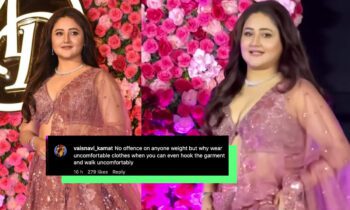30 Years Ago, The Bihar Government Introduced Period Leaves For Women Employees. And We Are Still Debating It In 2020

In a remarkable and revolutionary move, Zomato announced a few weeks ago that it will be providing 10-day period leaves every year to its female employees. While it sparked some debate where people got pretty concerned about equality at the workplace all of a sudden and called it an unnecessary leniency (seriously?). Of course, this became a raging debate because a courtesy of this kind was being extended to women. But mostly it drew praise because it was a good move and they were the first ones to take into consideration that women do go through intense pain, nausea and what not during menstruation and deserve an off from work during those days.
However, as it turns out, Zomato isn’t the first one to introduce period leaves in India. Nearly 30 years ago, Bihar government mandated 2 days period leaves to female employees that they can avail any month they need to without any justification. Let that sink in. In January 1992, the government led by Lalu Prasad Yadav sanctioned an additional 2 consecutive leaves for every woman working as a regular government employee in the state every month.
One of the human resource guidelines of Bihar Government reads, “All women staff is eligible to avail two days of special leave every month because of biological reason. This is in addition to all the other eligible leaves.”
Raj Kumar, the Director of Bihar Social Welfare Department, said, “Bihar was the first state to introduce such a progressive legislation. Now the women decide which days to take the leave by simply sending an email to their boss. Also, (last year) they were told that they can decide when to stop taking the leave because (menopause) time is different for different women.” So, basically Lalu Prasad Yadav did it way before it was cool.
Also Read: #Trending : Zomato To Now Give Its Female Employees 10 Extra Period Leaves A Year. Finally, A Step Towards De-Stigmatising Menstruation!
#HistoryHeadline As Zomato gives menstrual leave to women employees, a look at how 30 years ago the Lalu Prasad govt in Bihar introduced the leave policy for working women in the state— revolutionary both for the state and for its time. https://t.co/SNQS4M36NH via @IndianExpress
— Ankita Dwivedi (@ankitadwivedi30) August 30, 2020
It all started with a strike by employees, not necessarily for period leaves but salaries and promotions. Rambali Prasad, general secretary of the Bihar Non-Gazetted Employees’ Federation recalls, “Nearly six lakh employees were on strike, demanding better salaries, promotions etc. About 10% per cent were women.” These women, who were teachers, nurses, clerks and typists in the government sector asked for menstrual leaves as part of the strike. “Laluji listened patiently,” he says, and gave the nod to their demand without any hesitation. On 2nd January 1992, the government issued an order allowing all the women employees two-day leaves and the rest is history. He also told Scroll.in, “Today, employees’ struggles have resulted in this order being extended to contract employees [such as teachers] as well.”
Honestly, I wouldn’t have imagined that the concept of period leaves has existed in our country in a state like Bihar for 30 years. This is commendable. However, despite the policy being in place for nearly three decades now, such a progressive move went unappreciated and unsung because it didn’t get any coverage. Maybe if it had been appreciated, more companies and state governments would have followed suit and it wouldn’t have taken us 30 years to give the female employees the bare minimum they deserve. I mean, we are already fighting tooth and nail against unequal pay, gender disparity and sexual harassment.
So, I did some research to see if there were any other instances of such ground-breaking moves in India before Zomato and you’d be surprised to know that there have been a couple of companies and organisations who have had this policy in motion even before Zomato came up with it.
For example, Mumbai-based media company Culture Machine and digital agency Gozoop both offer its women employees leaves on the first day of their periods. Similarly, a digital marketing firm FlyMyBiz also implemented menstrual leaves for its women staffers. In fact, in 2017, Ninong Ering, Congress Lok Sabha Member of Parliament from Arunachal Pradesh tabled The Menstruation Benefit Bill that laid down 2-day paid menstrual leave to female employees working in public and private sector but unfortunately, it got rejected by the Indian parliament.
An Indian company's offer of leave for women on the first day of their periods has set off a debate with polarised views from women themselves. And, it is a government policy in Bihar since 1992, I learned.
— Vivek Soundararajan / விவேக் சௌந்தரராஜன் (He/Him) (@Vivek_Soundar) August 13, 2020
Globally speaking, Japan has a law since 1947 that allows women to take days off during periods. Similarly, South Korea has implemented menstrual leaves for women employees since 2001. Then, why are we debating about this in 2020 saying this is not a great move and would further perpetuate prejudice against women in workplace? It’s a fact that women are biologically different from men so its not about equality or special treatment. Also, just because some women don’t struggle with period pain and uneasiness during menstruation, it doesn’t mean all the women can function like it’s NBD. Some women suffer from crippling pain and experience extreme weakness and nausea, so let’s stop generalising. Secondly, if an employer is biased enough to not hire women, it wouldn’t make such a policy an additional excuse for him to not hire them.
My point is, Bihar Government may be the first one to make a bold move of breaking free of the age-old shame and stigma around periods and allowing its women employees menstruation leaves some 30 years ago, but we want every organisation and the government to adopt this policy. It is the only way to make workplace inclusive for all employees rather than expecting women to put behind their needs due to the fear of sexist remarks and not-so-gentle jibes at the workplace.

















